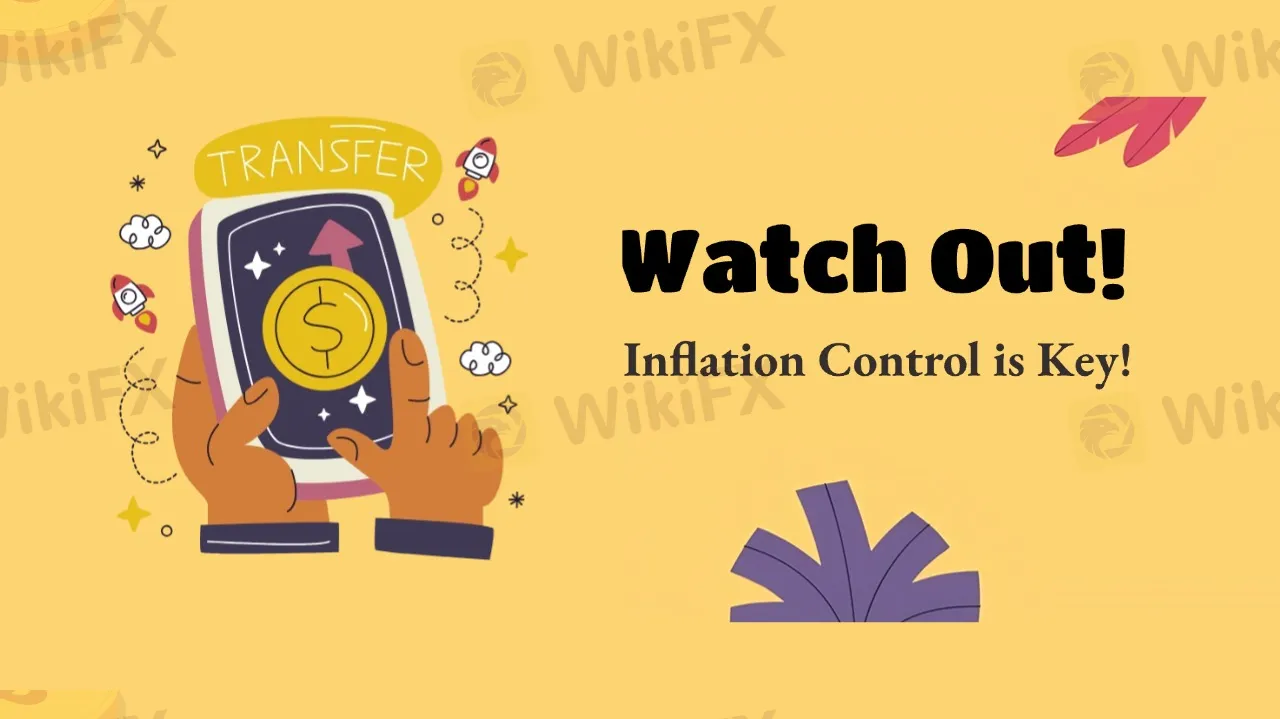简体中文
繁體中文
English
Pусский
日本語
ภาษาไทย
Tiếng Việt
Bahasa Indonesia
Español
हिन्दी
Filippiiniläinen
Français
Deutsch
Português
Türkçe
한국어
العربية
Watch Out! Inflation Control is Key!
Abstract:Recently, the stability of the Naira exchange rate has become a key focus in the market. The Central Bank of Nigeria (CBN) has implemented a series of monetary policy interventions, reducing the exchange rate gap between the official market and the parallel market to below 1%.

This stabilization has boosted market confidence and helped mitigate speculative risks caused by exchange rate volatility. However, despite the stabilization of the exchange rate, the overall economy still faces numerous challenges, particularly the unresolved issue of high inflation.
CBN has introduced policies such as the electronic foreign exchange matching system (B-Match) and the Foreign Exchange Code, significantly enhancing market transparency and curbing underground trading. Additionally, Nigeria's oil production has increased to 1.54 million barrels per day, and foreign exchange reserves have reached $39.4 billion, providing 9.6 months of import coverage. These factors combined have further stabilized the Naira and attracted more investor interest in the Nigerian market.
Inflation Remains the Biggest Concern
While the exchange rate has improved, inflation remains a major challenge for the Nigerian economy. As of January 2025, Nigerias overall inflation rate stood at 24.48%, with food inflation soaring to 26.08%.
High import costs, unstable agricultural production, and supply chain bottlenecks have all contributed to rising prices, keeping inflation at persistently high levels. Moreover, security concerns have exacerbated food shortages and logistical difficulties, putting additional pressure on ordinary citizens.
To effectively control inflation, the Nigerian government must adopt a comprehensive approach. First, strengthening agricultural infrastructure, boosting domestic production, and reducing reliance on imported food are essential. Second, optimizing supply chain management, lowering logistics costs, and improving market liquidity can help stabilize prices.
Additionally, the government should increase investments in the energy sector to ensure a stable power supply, thereby reducing production costs for businesses. At the same time, better coordination between monetary and fiscal policies is needed to maintain market stability and enhance investor confidence.
Overall, while the stabilization of the Naira exchange rate is a positive sign, inflationary pressures remain a serious concern. The government and CBN must continue pushing forward with reforms and strengthening policy coordination to ensure long-term economic stability.
Disclaimer:
The views in this article only represent the author's personal views, and do not constitute investment advice on this platform. This platform does not guarantee the accuracy, completeness and timeliness of the information in the article, and will not be liable for any loss caused by the use of or reliance on the information in the article.
Read more

Never Heard of Dynasty Trade? Here's Why You Should Be Worried
Have you heard this name before? No , it’s time you do because staying unaware could cost you. This platform is currently active in the forex trading and has been linked to several suspicious activities. Even if you’ve never dealt with it directly, there’s a chance it could reach out to you through ads, calls, messages, or social media. That’s why it’s important to know the red flags in advance.

WEEKLY SCAM BROKERS LIST IS OUT! Check it now
If you missed this week's fraud brokers list and are finding it difficult to track them one by one — don’t worry! We’ve brought together all the scam brokers you need to avoid, all in one place. Check this list now to stay alert and protect yourself from fraudulent brokers.

Catch the Latest Update on BotBro & Lavish Chaudhary
BotBro, an AI-based trading platform, became popular in India in 2024—but for negative reasons. Its founder, Lavish Chaudhary, who gained a huge following by promoting it heavily on social media. Since then, he has become well-known, but for many controversies. Let’s know the latest update about Botbro & Lavish Chaudhary.

Trading Other People’s Money | What Prop Firms Don’t Tell You
Proprietary (prop) trading firms have become increasingly popular. They give traders the chance to trade with larger amounts of money without risking their own savings. For many, this sounds like the perfect opportunity to grow faster and earn more. But while the benefits are appealing, there are also risks and hidden rules that traders must understand before joining a prop firm.
WikiFX Broker
Latest News
Asia-Pacific stocks fall as investors weigh recent trade developments
Is Your Forex Strategy Failing? Here’s When to Change
FSMA Warns That Some Firms Operate as Pyramid Schemes
Apex Trader Funding is an Unregulated Firm | You Must Know the Risks
LVMH shares jump 2.5% after reporting better-than-feared earnings, Texas factory plans
Why Octa Is the Ideal Broker for MetaTrader 4 & 5 Users
Stop Level Forex: How Does it Help Traders Prevail When Losses Mount?
5 things to know before the Thursday open: Meme stock revival, Trump's Fed visit, Uber's gender feature
CNBC's Inside India newsletter: Leaving, but not letting go — India's wealthy move abroad, but stay invested
Moncler raises prices on tariffs, may postpone store openings if downturn worsens
Currency Calculator



